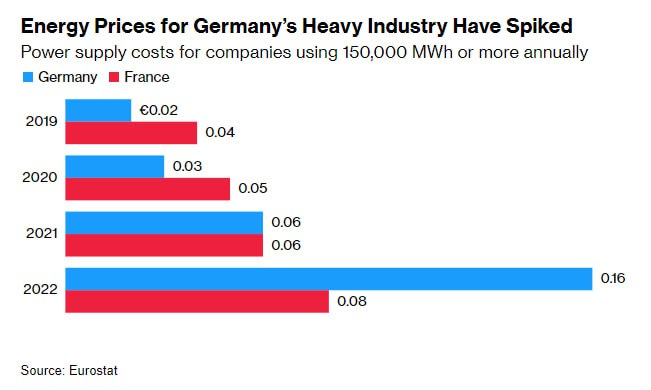While the dispute centers around the role of nuclear power in the bloc’s future energy mix, it is ultimately about where the industrial heart of Europe lies.
“Governments in both Paris and Berlin are looking at how to provide electricity at the lowest cost,” said Christian Egenhofer, a senior researcher at the CEPS think-tank in Brussels. “It’s almost a matter of political survival.”
France is now seeking to gain an advantage in revising EU electricity market rules to help extend the life of its aging and indebted reactor fleet.
The plan would allow the government to provide more stability for state-owned Electricite de France SA and attract new sources of funding to extend the life of its reactors.
Berlin is blocking the initiative as Germany tries to rebuild its own energy system after the collapse of Russian gas supplies last year and the end of a decade-long journey to shut down its nuclear reactors earlier this year.
Europe’s largest economy fears that France could drive down German power prices if Paris’ proposed regulation allows EDF to sell electricity at unprofitable prices.
The spat over energy prices is just one aspect of the tensions between the two countries. This year, France and Germany clashed over key elements of the green deal.

